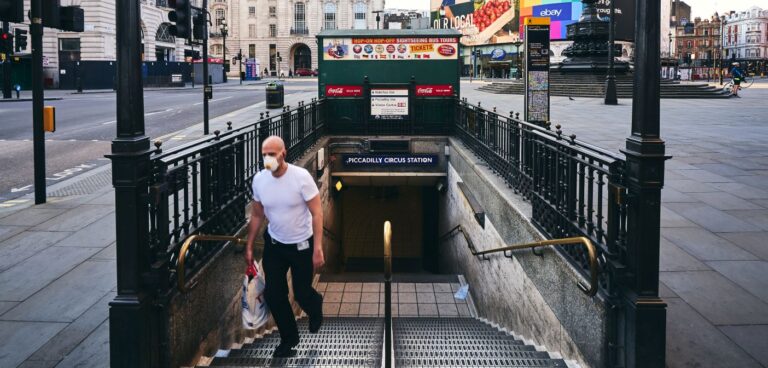Mayor of London Sadiq Khan has warned that an entire Tube line could close if the UK government does not grant Transport for London (TfL) the emergency and long-term funding needed to maintain the capital’s transport services.
The current emergency funding deal with the government expires on 11 December and Khan has outlined how failure to provide enough operational and capital funding for TfL means it will be forced to move into a “managed decline”, potentially leading to run-down services reminiscent of the 1970s and 80s.
According to Khan, in practice, this could mean more than 100 bus routes being withdrawn and less frequent Tube timetables on a number of lines and branches, while an increase in road and tunnel closures could cause wide-spread disruption and gridlock across the capital.
TfL said £500m in operational support will be needed from the government through to the end of the financial year 2021/22, and around £1.2bn will be needed for the financial year 2022/23. Beyond that, TfL said it needed “sustainable capital investment” to maintain services.
However, according to Khan, the financial crisis caused by the pandemic has caused such damage that, unless the government provides funding certainty, yet more cuts and damaging measures will need to be implemented.
Khan said: “I agree with the government and mayors across the country when they say other regions should have London-style transport services. But the irony is that a failure to provide enough operational and capital funding for TfL means that it won’t be long before London itself will no longer have “London-style” transport services.
“If the government continues to starve TfL of funding, bus services would have to be reduced by almost a fifth, and Tube services would need to be cut by nearly 10%.
“Not only would this have a devastating effect on passengers, but it would put the national economic recovery at risk. Because there can be no national economic recovery without a London recovery, and there can no London recovery without a properly funded public transport network in the capital.”
London reportedly contributes £36.1bn pounds a year more to the Treasury than the government spends in London, which, the Greater London Authority (GLA) claimed, funds services, including public transport, in the rest of the country.
What’s more, according to the GLA, TfL investment and its supply chain currently supports 43,000 jobs across the country, with 55p of every pound spent on London Underground by TfL going outside of London.
Pre-pandemic, TfL’s deficit had been reduced by 71% and its cash balance had increased by 13%, while running costs year on year were cut and organisation was reportedly on track to reach a net operating surplus.
However, TfL has to raise 72% of its operating income from fares, whereas it is only 38% in New York and Paris. When the pandemic hit, passenger numbers fell by 95%, which had a major impact on TfL’s finances.





